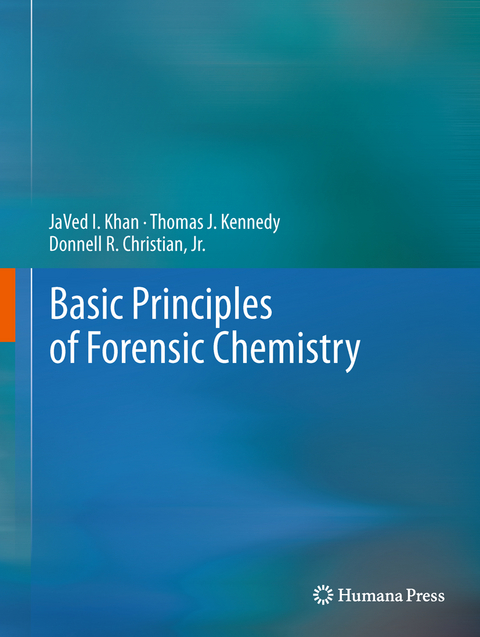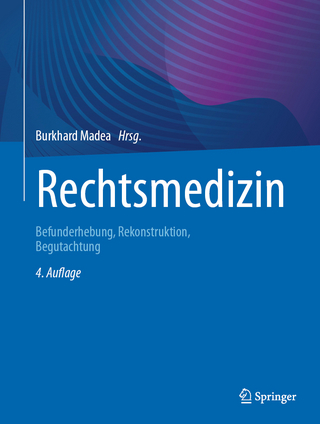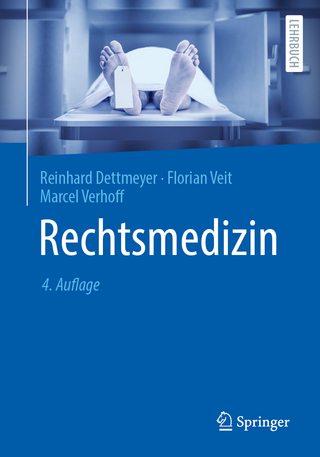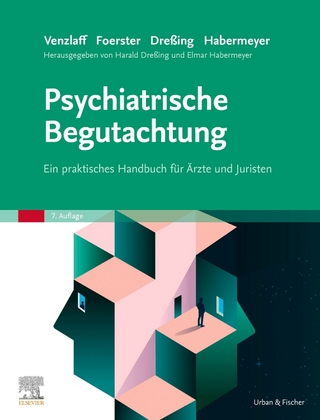
Basic Principles of Forensic Chemistry
Humana Press Inc. (Verlag)
978-1-62703-892-8 (ISBN)
Essential and comprehensive, Basic Principles of Forensic Chemistry provides the fundamental knowledge required for a rewarding journey into the field of forensic chemistry.
JaVed I. Khan Mr. Khan holds a Masters of Science Degree in Biochemistry from the University of California, Riverside, a Masters of Science Degree in Biochemistry from the University of Agriculture, Faisalabad, Pakistan, and a Bachelors of Science in Chemistry/Biology from B.Z. University, Multan, Pakistan. He has more than seventeen years of experience in the field of Forensic Sciences at the California State Department of Justice in the Riverside Crime Laboratory. He is an accomplished Forensic Scientist whose expertise expands in various fields including forensic chemistry, forensic biology, and forensic toxicology. He has authored a number of publications on related topics. Mr. Khan responded to hundreds of clandestine laboratory operations as a clandestine laboratory field expert. He examined the evidence from thousands of clandestine laboratory operations. Mr. Khan testified in various courts as a clandestine laboratory analyses expert witness. Mr. Khan is a recognized expert witness in other fields of forensics and has appeared more than three hundred times in federal, state, and local county courts in this capacity. Mr. Khan has more than twelve years of teaching experience as a part-time college instructor of Forensic Chemistry and Biology. He has developed curriculum of forensic chemistry, forensic biology, and forensic toxicology courses for Mt. San Jacinto College in Riverside, California. He is a dedicated professional whose insight and tireless efforts provided the driving force for this project. Thomas J. Kennedy Mr. Kennedy holds a Bachelor of Science in Chemistry from the University of Rochester, Rochester, N.Y. and a Master of Science in Chemistry from California State Polytechnic University, Pomona, CA. Mr. Kennedy is a former police officer and has been teaching Chemistry at Victor Valley College since 1994. He has been chairman of the Department of Chemistry for the past eight years. Mr. Kennedy is a passionate teacher focused on student success. Donnell R. Christian Donnell R. Christian is a PhD candidate at the University of South Africa, holds a Masters in Criminal Justice from American Military University and Bachelor’s degrees in Chemistry and Police Administration from Northern Arizona University. He is the author of Forensic Investigation of Clandestine Laboratories (2003). His companion book, Field Guide to Clandestine Laboratory Identification and Investigation (2004) provides a ready reference for police, fire, and emergency responders who potentially encounter clandestine labs in their daily activities. Mr. Christian has published articles on the analysis, and the clandestine manufacture and analysis, of controlled substances and has developed training programs for investigators, laboratory examiners, and attorneys involved in the investigation, examination, and prosecution of clandestine labs. He also authored a chapter concerning theanalysis of controlled substances in of Forensic Science, An Introduction to Scientific and Investigative Techniques (2002, 2005, 2009) and the forensic chemistry section in The Forensic Laboratory Handbook, Procedures and Practices (2005, 2011). Mr. Christian is the Director of Forensic Programs at Professional Business Solutions, Inc. and is the former Forensic Science Development Coordinator for the United States Department of Justice’s International Criminal Investigative Training Assistance Program (ICITAP). With ICITAP, he has assisted in establishing forensic science programs in the developing democracies of Armenia, Azerbaijan, Bosnia, Bulgaria, Georgia, Haiti, Kazakhstan, Kyrgyzstan, Senegal, Turkmenistan, and Uzbekistan. Mr. Christian served as President and Chairman of the Board of Directors for the Southwestern Association of Forensic Scientists (SWAFS). Additionally, he spent fifteen years with the Arizona Department of Public Safety Crime Laboratory specializing in forensic chemistry and trace analysis, with emphasis in the clandestine manufacture of controlled substances (i.e., drugs and explosives). He has responded to hundreds of clandestine lab scenes, examined thousands of exhibits, and provided untold hours of testimony.
Introduction.- Atomic Structure.- Molecules.- Organic Chemistry.- Forensic Language.- Forensic Documentation.- Chemical Screening.- Microcrystal Techniques.- Chemical Extraction.- Chromatography and Mass Spectrometry.- Infrared Spectroscopy.- Cannabis.- Phenethylamines.- Tertiary Amines.- Tryptamines.- Anabolic Steroids.- Miscellaneous Controlled Substances.- Clandestine Operations: Synthetic Methods, Hazards, and Safety.- Evidence Identification and Collection.- Examination of Clandestine Evidence: Methamphetamine Production.- Laboratory Manual.
| Zusatzinfo | XXII, 354 p. |
|---|---|
| Verlagsort | Totowa, NJ |
| Sprache | englisch |
| Maße | 210 x 279 mm |
| Themenwelt | Medizin / Pharmazie ► Medizinische Fachgebiete ► Pharmakologie / Pharmakotherapie |
| Studium ► 2. Studienabschnitt (Klinik) ► Rechtsmedizin | |
| Naturwissenschaften ► Chemie ► Analytische Chemie | |
| Schlagworte | BASIC • Chemistry • Christian • Controlled substances • Forensic • Forensic Science • kennedy • Khan • Narcotics • Principle |
| ISBN-10 | 1-62703-892-2 / 1627038922 |
| ISBN-13 | 978-1-62703-892-8 / 9781627038928 |
| Zustand | Neuware |
| Haben Sie eine Frage zum Produkt? |
aus dem Bereich


